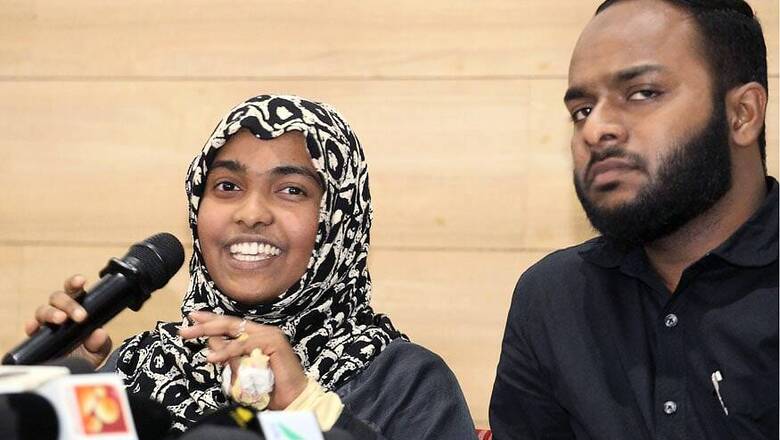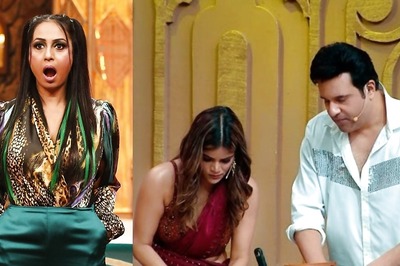
views
New Delhi: The Supreme Court on Monday held that matters of dress and of food, of ideas and ideologies, of love and partnership are among the essential aspects of one's identity and Constitutional guarantees, which must be protected by the courts to safeguard our pluralism and diversity as a nation.
A three-judge bench, comprising Chief Justice Dipak Misra and Justices AM Khanwilkar and DY Chandrachud, made certain vital comments in their judgment, giving reasons to set Hadiya free in what once came to be known as the Kerala Love-Jihad case.
On March 8, the bench gave back absolute liberty to Hadiya to pursue her choices in life after a period of turmoil over her conversion to Islam and subsequent marriage to a Muslim man.
The Kerala High Court had last year annulled her marriage and sent her to parental house, questioning her conversion and choice of the life partner.
While setting aside the HC order, the apex court had then said that a reasoned judgment would follow.
On Monday, the bench, through two concurrent orders, gave its reasons, and emphasised upon the obligation of the court to exercise the celebrated writ that breathes life into Constitutional guarantee of freedom and respect for one's right to choose the life partner.
“Matters of belief and faith, including whether to believe are at the core of Constitutional liberty. The Constitution exists for believers as well as for agnostics. The Constitution protects the ability of each individual to pursue a way of life or faith to which she or he seeks to adhere. Matters of dress and of food, of ideas and ideologies, of love and partnership are within the central aspects of identity," stated the order authored by Justice DY Chandrachud.
The judge maintained that the society has no role to play in determining one’s choice of partners and that the intimacies of marriage, including the choices which individuals make on whether or not to marry and whom to marry, lie outside the control of the state.
"Intrinsic to the liberty which the Constitution guarantees as a fundamental right is the ability of each individual to take decisions on matters central to the pursuit of happiness... Nothing can be as destructive of freedom and liberty. Fear silences freedom," said the judgment.
Justice Chandrachud underlined the significance of diversity in India and how the Constitution protects it.
"The strength of our Constitution lies in its acceptance of the plurality and diversity of our culture. Courts as upholders of Constitutional freedoms must safeguard these freedoms. The cohesion and stability of our society depend on our syncretic culture. The Constitution protects it. Courts are duty bound not to swerve from the path of upholding our pluralism and diversity as a nation," he held.
CJI Misra and Justice Khanwilkar, in their order, maintained that when the liberty of a person is illegally smothered and strangulated and his/her choice is throttled by the state or a private person, the signature of life melts and living becomes a bare subsistence, which the Constitution cannot countenance.



















Comments
0 comment